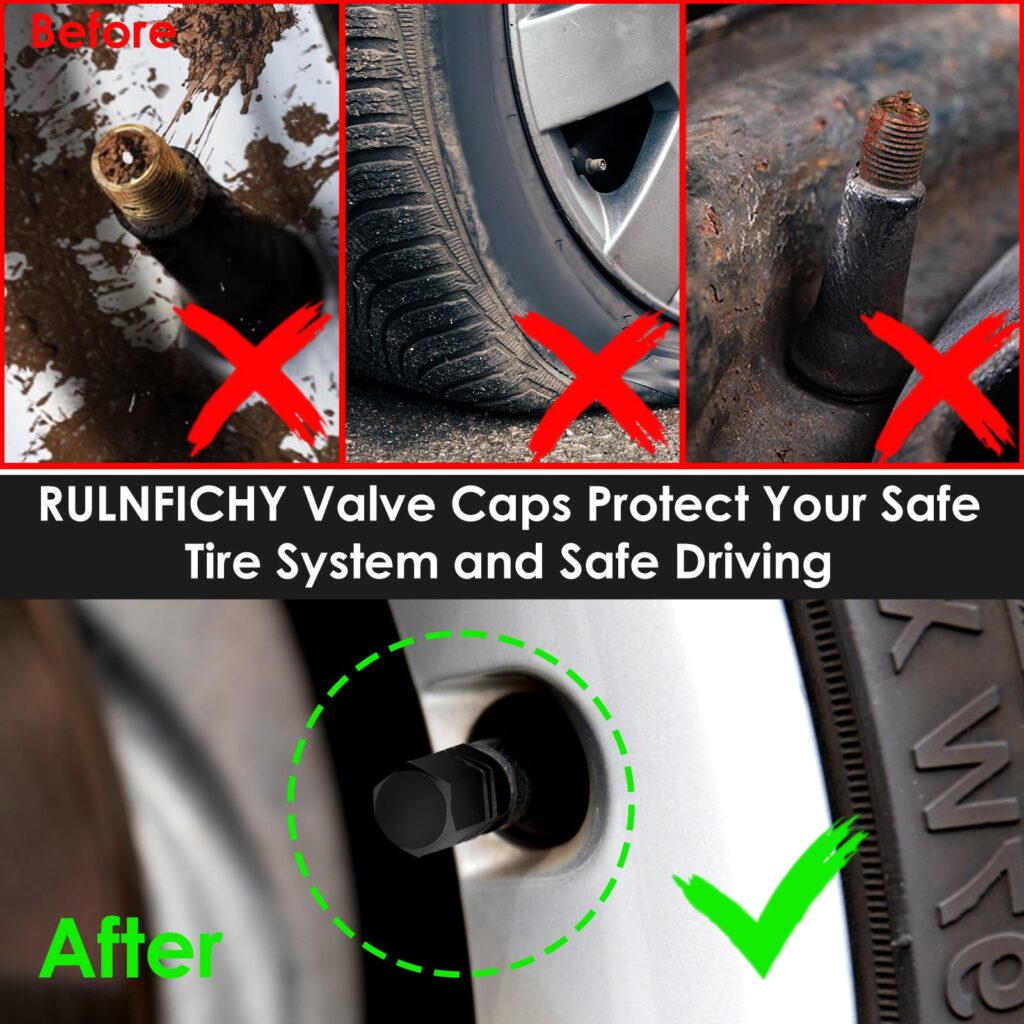Tire valve caps are those small, often overlooked pieces that sit on the metal stems of your tires. While they might seem insignificant, these little guardians actually play a crucial role in keeping your tires healthy and performing at their best. This article will delve into the safety and purpose of tire valve caps, exploring their benefits and helping you determine if they’re truly necessary for your vehicle.
We’ll cover everything from how tire caps protect your valves to the impact of driving conditions on their importance. By the end, you’ll have a clear understanding of why tire valve caps matter and whether or not you should be using them.
Tire Valve Caps: Safety & Purpose
Tire valve caps are designed primarily to safeguard the delicate valve stem inside each tire. This stem is responsible for regulating air pressure within the tire, allowing you to inflate and deflate it as needed. Without protection, the valve stem can become vulnerable to dirt, debris, and even corrosion from moisture.
These contaminants can lodge themselves inside the valve stem, interfering with its function and potentially leading to leaks or a complete failure. A compromised valve stem can result in a slow or rapid loss of air pressure, making your vehicle unsafe to drive. In severe cases, it could even lead to a blowout while you’re on the road.
Benefits of Using Tire Valve Caps
Beyond protecting your valve stems, tire valve caps offer several other benefits that contribute to overall tire health and performance:
- Corrosion Prevention: Tire caps act as a barrier against moisture and environmental elements, preventing corrosion on the valve stem and extending its lifespan.
Improved Air Retention: While they don’t directly keep air in your tires, by protecting the valve stem, tire caps help ensure that your tires maintain their proper pressure for longer periods. This leads to better fuel efficiency, handling, and tire longevity.
Aesthetic Enhancement: Let’s face it, a set of stylish tire caps can add a touch of personalization and visual appeal to your vehicle.
Do You Need Tire Valve Caps?
The question of whether or not you need tire valve caps is a matter of personal preference and driving conditions. While they don’t pose an immediate safety hazard if left off, their benefits are undeniable.
In most cases, it’s highly recommended to use tire valve caps, especially if you:
- Drive in dusty or dirty environments: If your vehicle frequently encounters dirt roads, construction sites, or other areas with loose debris, tire caps will help protect your valve stems from damage.
- Live in a humid or coastal climate: Moisture and salt can accelerate corrosion on metal parts, making tire caps essential for protecting your valve stems in these environments.
Driving Conditions and Tire Caps
The type of driving you do can also influence the importance of using tire valve caps:
- Off-Road Driving: If you frequently venture off paved roads, tire caps are crucial for shielding your valve stems from rocks, mud, and other debris that can cause damage.
- Highway Driving: While highway driving typically involves smoother surfaces, it’s still beneficial to use tire caps as they help prevent the buildup of dirt and grime on your valve stems over time.
Tire Pressure Maintenance
While tire valve caps don’t directly impact tire pressure, they contribute indirectly by protecting the valve stem. A properly functioning valve stem allows for accurate air pressure readings and prevents leaks that can lead to underinflation or overinflation.
Conclusion
Tire valve caps may seem like a small detail, but their role in maintaining your tires’ health and safety is significant. By protecting your valve stems from damage and contributing to proper air retention, they help ensure optimal tire performance and longevity. While driving without them isn’t inherently dangerous, the benefits of using tire caps far outweigh any perceived inconvenience. So, next time you’re checking your tire pressure, take a moment to consider the importance of those little caps – they might just be saving you from a bigger headache down the road.



